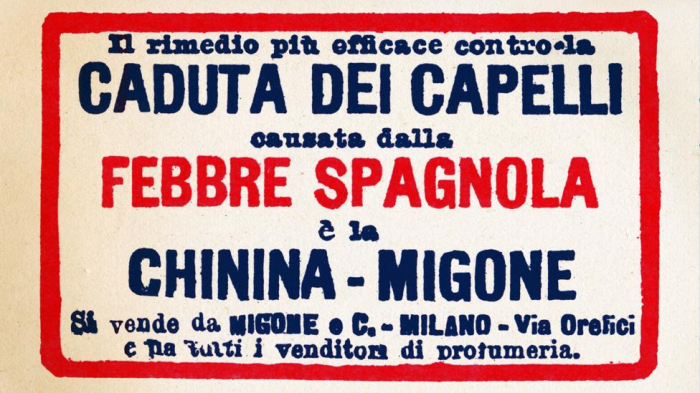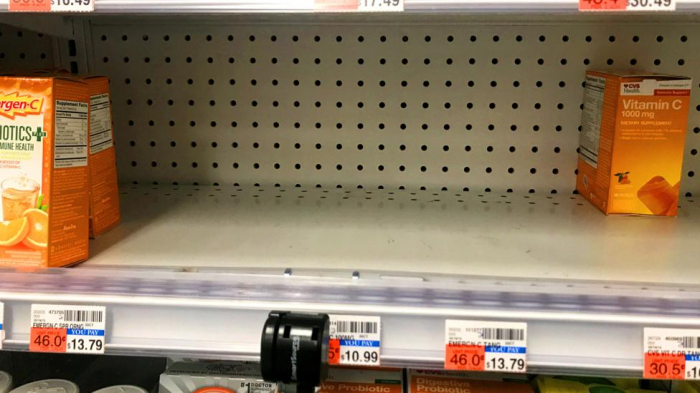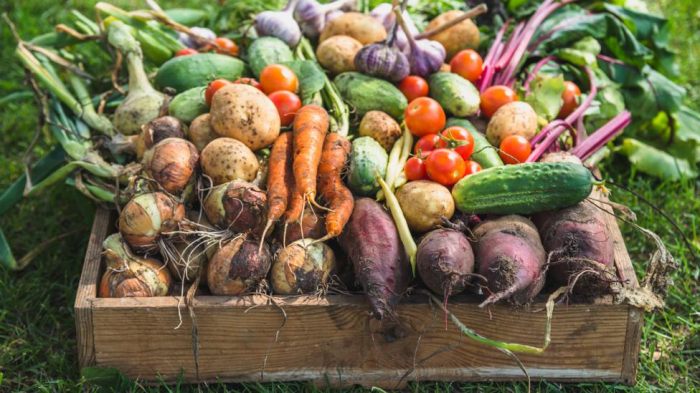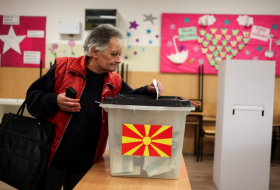Forget kombucha and trendy vitamin supplements – they are nothing more than magic potions for the modern age.
“Spanish Influenza – what it is and how it should be treated,” read the reassuringly factual headline to an advert for Vick’s VapoRub back in 1918. The text beneath included nuggets of wisdom such as “stay quiet” and “take a laxative”. Oh, and to apply their ointment liberally, of course.
The 1918 flu pandemic was the most lethal in recorded history, infecting up to 500 million people (a quarter of the world’s population at the time) and killing tens of millions worldwide.
But with crisis comes opportunity, and the – sometimes literal – snake oil salesmen were out in force. Vick’s VapoRub had stiff competition from a panoply of crackpot remedies, including Miller’s Antiseptic Snake Oil, Dr Bell’s Pine Tar Honey, Schenck’s Mandrake Pills, Dr Jones’s Liniment, Hill’s Cascara Quinine Bromide, and A. Wulfing & Co’s famous mint lozenges. Their adverts made regular appearances in the newspapers, where they starred alongside increasingly alarming headlines.
Fast-forward to 2020, and not much has changed. Though the COVID-19 pandemic is separated from the Spanish flu by over a century of scientific discoveries, there are still plenty of questionable medicinal concoctions and folk remedies floating around. This time, the theme is “boosting” the immune system.
Of the rumours currently circulating on social media, one of the more bizarre is the idea that you can raise your white blood cell count by masturbating more. And as always, nutritional advice abounds. This time, we’re being encouraged to seek out foods rich in antioxidants and vitamin C (back in 1918, the public were told to eat more onions), while pseudoscientists are peddling trendy products such as kombucha and probiotics.
According to one source, cayenne pepper and green tea can provide better protection against COVID-19 than face masks – a bold and highly dubious claim, considering that some face masks reduce your risk of contracting respiratory viruses by a factor of five. (Read more about what evidence exists for the idea that spices can affect your health, and how hot drinks will not protect you from COVID-19).
There’s no such thing as boosted immunity
Unfortunately, the idea that pills, trendy superfoods or wellness habits can provide a shortcut to a healthy immune system is a myth. In fact, the concept of “boosting” your immune system doesn’t hold any scientific meaning whatsoever.
“There are three different components to immunity,” says Akiko Iwasaki, an immunologist at Yale University. “There’s things like skin, the airways and the mucus membranes that are there, to begin with, and they provide a barrier to infection. But once the virus gets past these defences, then you have to induce the ‘innate’ immune response.” This consists of chemicals and cells which can rapidly raise the alert and begin fighting off any intruder.

The 1918 flu pandemic was an opportunity for snake oil salesmen to market their useless - and sometimes harmful - products (Credit: Getty Images)
“When that is not enough, then we kick in the adaptive immune system,” she says. This involves cells and proteins – antibodies – which take a few days or weeks to emerge. Importantly, the adaptive immune system can only target particular pathogens. “So, for example, a T-cell specific to COVID-19 will not respond to influenza or bacterial pathogens.”
Most infections will trigger adaptive immunity eventually. But there's another way to get it going, and that's vaccination: exposing the body to live or dead microbes, or parts of them, can help the body to identify the real deal when it comes along.
The concept of “boosting” a person’s immune system would, presumably, involve making these responses more active, or stronger.
In actuality, you wouldn’t want to do this.
Take the symptoms of a cold – body aches, a fever, brain fog, copious amounts of snot and phlegm. Most of these problems aren’t actually caused by the virus itself. Instead, they’re triggered by your own body, on purpose: they’re part of the innate immune response.
In this case, the mucus helps to flush out the pathogen, the fever helps to make your body an uncomfortably hot environment in which it’s harder for it to replicate, and the aches and general malaise are by-products of the inflammatory chemicals that course through your veins, telling immune cells what to do and where to go. (These symptoms also help signal to your brain that it’s time to slow down and let your body recover).
The mucus and chemical signals are part of inflammation, which is the bedrock of a healthy immune response. But the process is exhausting, so you wouldn’t want to have it turned up to 11 all the time. And most viruses, including COVID-19, will trigger it anyway. If kombucha, green tea or any of the various “immune-boosting” concoctions on the market really had any impact, they wouldn’t give you a healthful glow: they’d give you a runny nose.
Ironically, many “immunity-boosting” products claim to reduce inflammation.

There is no evidence that vitamin supplements will protect you from infections, unless you are deficient (Credit: Reuters)
Making the other aspect of immunity – the adaptive immune system – generally more active could also be extremely unpleasant. For example, allergies occur when overzealous immune cells learn to treat innocuous foreign bodies, such as pollen, as though they are harmful. Each time they find the offending substance, they switch on the innate immune response too – cue lots of sneezing, itchy eyes and general fatigue. Again, this is probably not what the people championing these remedies have in mind.
But let’s give those saying you can “boost” your immune system the benefit of the doubt and assume they mean that certain products can improve the immune response in a useful way – rather than literally “boost” it.
“The problem is that many of these claims have no grounding in evidence,” Iwasaki says. So what are they based on – and is there anything that can help?
If you’re healthy, forget supplements – except vitamin D
Many multivitamins claim to provide “immune support” or to help “maintain healthy immune function”. But as BBC Future reported in 2016, vitamin supplements generally don’t work in already healthy people – and some may even be harmful.
Take vitamin C. The health effects of this antioxidant have been steeped in mythology ever since the two-time Nobel Prize winner Linus Pauling became obsessed with its ability to fight the common cold. After studying the vitamin for years, eventually, he started taking 18,000 mg per day – around 300 times the current recommended daily amount.
However, there is little evidence to support vitamin C’s mighty reputation for helping us to fight off colds and other respiratory infections. A 2013 review by Cochrane – an organisation renowned for its unbiased research – found that in adults “trials of high doses of vitamin C administered therapeutically, starting after the onset of symptoms, showed no consistent effect on the duration or severity of common cold symptoms”.
In fact, many experts consider the vitamin C market to be a bit of a racket, as most people in the developed world get enough from their diets already. Though scurvy is thought to have killed two million sailors and pirates between the 15th and 18th Centuries, the numbers now are far lower. For example, just 128 people in England were hospitalised with the disease between 2016 and 2017. On the other hand, high doses of this vitamin can lead to kidney stones.
“Vitamin supplements aren’t beneficial to your immune system unless you are deficient,” says Iwasaki.

Brightly coloured fruits and vegetables tend to contain the most antioxidants because the compounds are often pigmented (Credit: Getty Images)
In the developed world, most people get enough vitamins from their diets (unless they are restricted – vegans, for example, are more likely to have certain deficiencies). However, there is one exception – vitamin D. Iwasaki explains that taking this supplement wouldn’t be a bad idea.
Several studies have linked low vitamin D levels to a higher risk of respiratory infections, and more severe symptoms when they develop. They’ve also been implicated in the development of autoimmune diseases such as multiple sclerosis.
In fact, many immune cells can actively recognise vitamin D, and it’s thought to play an important role in both the innate and acquired immune response – though exactly how remains a mystery.
But crucially – and unusually – vitamin D deficiencies are endemic in many countries, even wealthy ones. As of 2012, it was estimated that about a billion people worldwide weren’t getting enough. And with more and more people urged to stay indoors, it’s easy to see how even less sunlight exposure could lead to more deficiencies. (Read more about who needs to take vitamin D and why).
No, masturbation won’t help either
Historically, this form of sexual activity was held in deep suspicion by Western medicine. After an 18th Century doctor claimed that the loss of one ounce of semen (28 millilitres) had the same effect on the body as losing 40 ounces (1.18 litres) of blood, masturbation was blamed for all kinds of health problems for hundreds of years, from blindness to neurosis.
Now the tables have turned, and recent research has shown that it can come with some surprising health benefits. In men, for example, it’s thought to help keep sperm healthy and may reduce a person’s risk of developing prostate cancer.
Alas, any claims that masturbation can improve your immunity or protect you from COVID-19 are overblown. It’s true that one study found that men had higher white blood cell counts when they were sexually aroused, and during orgasm. However, there is no evidence that this translates into protection from infections.
There is one way that the practice might protect you – by keeping away from other people. On Twitter, the New York City Department of Health and Mental Hygiene recently reminded their followers that, in the age of COVID-19, “you are your safest sex partner”.
There’s no need to stock up on antioxidant pills
The question of whether antioxidants can help is slightly more complicated.
As part of the inflammatory response, white blood cells release toxic oxygen compounds. These are something of a double-edged sword. On the one hand, they can kill bacteria and viruses and stop them from being able to make more copies of themselves. On the other, they can damage healthy cells, leading to cancer and ageing – and wearing out the immune system.
To stop this from happening, the body relies on antioxidants. These help to control those unruly oxygen compounds and keep our cells safe.
And we get some of our reserves of these compounds from our diets. Brightly coloured fruits, vegetables and spices tend to contain the most, because antioxidants are often pigmented: they give carrots, blueberries, aubergines, red kale, turmeric, and strawberries their hues.

Wellness experts like to promote kombucha as more than just a drink - but there's no evidence that it can treat or prevent any illnesses, including COVID-19 (Credit: Getty Images)
There’s currently a trial in the works to test if giving people with COVID-19 antioxidant supplements might help their recovery.
However, the trial is just one of the hundreds looking into potential treatments for COVID-19. And despite decades of research, not a single placebo-controlled, peer-reviewed study on humans has ever shown that high doses of antioxidants can “boost” the immune system, or treat or prevent viral infections in humans.
Probiotics may help… or they may not
If you believe the wellness experts and homoeopaths, kombucha is much more than a sweet, fizzy drink made from fermented tea. The internet is teeming with outrageous claims about the product, including that it can treat cancer and even Aids (it can’t).
Now some websites are suggesting that it can help to stop you getting COVID-19 (and it probably can’t).
Like probiotics, kombucha contains live microorganisms. However, no studies have ever confirmed whether the drink has these in high enough concentrations to be considered one – and there is currently no evidence that kombucha specifically can treat or prevent any illnesses whatsoever.
The picture is less clear for probiotics in general.
One 2015 review found that probiotics – beneficial microorganisms which are concentrated in foods, drinks, or pills – significantly reduced the number of upper respiratory tract infections that people got and made them less severe. They also slightly reduced the use of antibiotics and led to fewer school absences. The authors concluded that they might be better than placebo treatments, but pointed out that the quality of the available evidence was low.
(You can find out more about what we do and don’t know about gut health, as well as how to eat your way to a healthy gut by checking out BBC Future’s series on gut bacteria from last year. We found that it’s true that gut bacteria are important – but that taking probiotics is unlikely to help you much, and that the best way forward is to simply eat a varied diet.)
Importantly, there is currently no evidence that any kind of probiotic can protect you from COVID-19.
So what has been proven to work?
Iwasaki says most of these myths are relatively innocuous – but the danger is that falling for them will give you a false sense of security. “One thing I do warn against is when people feel like they're protected. They shouldn't feel empowered to go out there and, you know, start having parties,” she says.
Wellness products aside, there are some approaches you can take to help support your immune system. They aren’t especially sexy, and you won’t see many wellness influencers selling them in a bottle. They are, however, proven to work – and they don’t require shelling out your hard-earned cash: get enough sleep, exercise, eat a balanced diet, and try not to be stressed.
Failing that, there is one sure-fire way to improve your immunity to certain pathogens: vaccination.
BBC FUTURE
More about: COVID-19















































